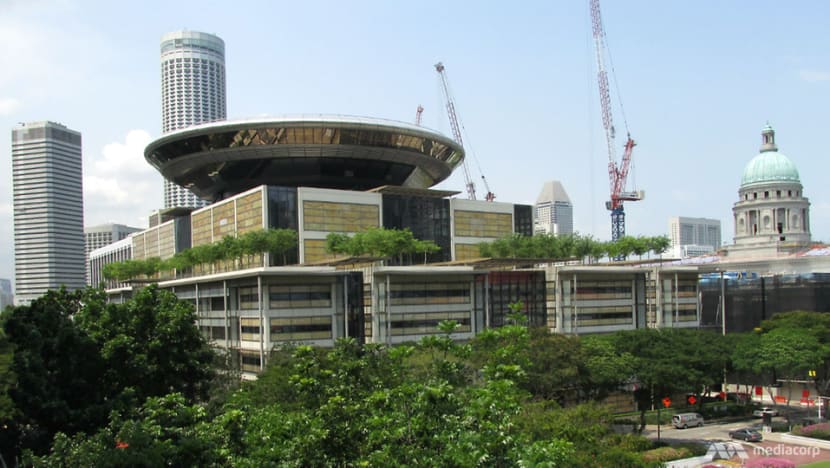District judge 'substantially copied' prosecutor's arguments, 'did not exercise mind': High Court judge

File photo of the exterior of Singapore's Supreme Court.
SINGAPORE: A district judge "substantially copied" arguments by the prosecution in his grounds of decision, rendering it unreliable to support the conviction of a Chinese medium who had taken drugs.
This finding was delivered by High Court judge Aedit Abdullah in his written judgment on Friday (May 24). He had heard an appeal by the Chinese medium, Lim Chee Huat, against his conviction and sentence of 11 months' jail, imposed by District Judge Mathew Joseph.
"In the present case, the district judge must have either extensively typed out the prosecution’s closing submissions or had someone else do so, which would have been an utter waste of time and effort; or he must have cut and pasted the submissions into his judgment," said the High Court judge.
"Either raises the questions of whether any consideration was given to the defence’s arguments and if the district judge properly weighed the strength of the parties’ submissions."
Despite ruling that "the record did not sufficiently disclose that the district judge had exercised his mind about the case at hand", Justice Aedit upheld the conviction after reviewing the case, along with the evidence, and dismissed both of Lim's appeals.
"I find that as substantial copying had occurred, the grounds of the
decision below could not be said to contain any determination of issues or a making of a decision by the district judge," said Justice Aedit. "It therefore could not be relied upon to support the appellant’s conviction."
Lim's lawyer Zero Geraldo Mario Nalpon had argued that the district judge had plagiarised the prosecution's closing submissions, alleging that his grounds of decision were "worthless".
He added that although the judge had a duty to give regard to both sides' arguments, he had not mentioned the defence's arguments and made a "mockery of the judiciary", with "clear bias" in favour of the prosecution.
The defence lawyer had compared the judge's grounds with the prosecution's submissions and found that the judge had replicated the latter, rearranging the sequence of paragraphs and making minor paraphrasing, even repeating a typographical error in the words "once against".
Deputy Public Prosecutors Isaac Tan and Chin Jincheng had accepted that the judge's grounds were "strikingly similar" to the prosecution's submissions, but argued that the arguments pertaining to the form of the grounds "were irrelevant".
They added that the defence's assertion of the district judge's bias in favour of the prosecution was not supported.
Said Justice Aedit: "I find that the district judge had copied the prosecution’s submissions to such a degree that I can only give minimal weight to his decision on conviction and sentence. However, I agree with the prosecution that this court is still capable of weighing the evidence on record to determine if the appellant’s conviction should be upheld."
In response to CNA queries on whether any disciplinary action will be taken against Judge Joseph, a spokesperson from the State Courts said: "Following the High Court’s decision on the case Lim Chee Huat v Public Prosecutor on 24 May 2019, the State Courts are looking into the matter and will not be able to comment further at this time."
ROLE OF JUDGMENT IS TO CONVEY REASONS FOR CASE OUTCOME
Justice Aedit explained that the primary role of a judgment or grounds of decision is to convey the reasons for the outcome or result in a particular case. The court is required to address arguments raised by parties, although it is not necessary for a judge to address all points.
However, one of the roles of a judgment is to give assurance to parties and the public that justice has been done, said Justice Aedit, and "practices that undermine confidence in the judicial process are thus to be avoided".
He noted that while plagiarism would not be a reason in itself for overturning a decision, it undermines the confidence in the judicial process and discloses "no act of judgment or discernment by the judge".
"The reasons for the district judge, who is neither a new nor a junior judge, copying so substantially are not before me," said Justice Aedit. "Pressures of work are not a sufficient reason. While judging is certainly not the sinecure that some may think it is, all jobs these days are stressful and demanding."














